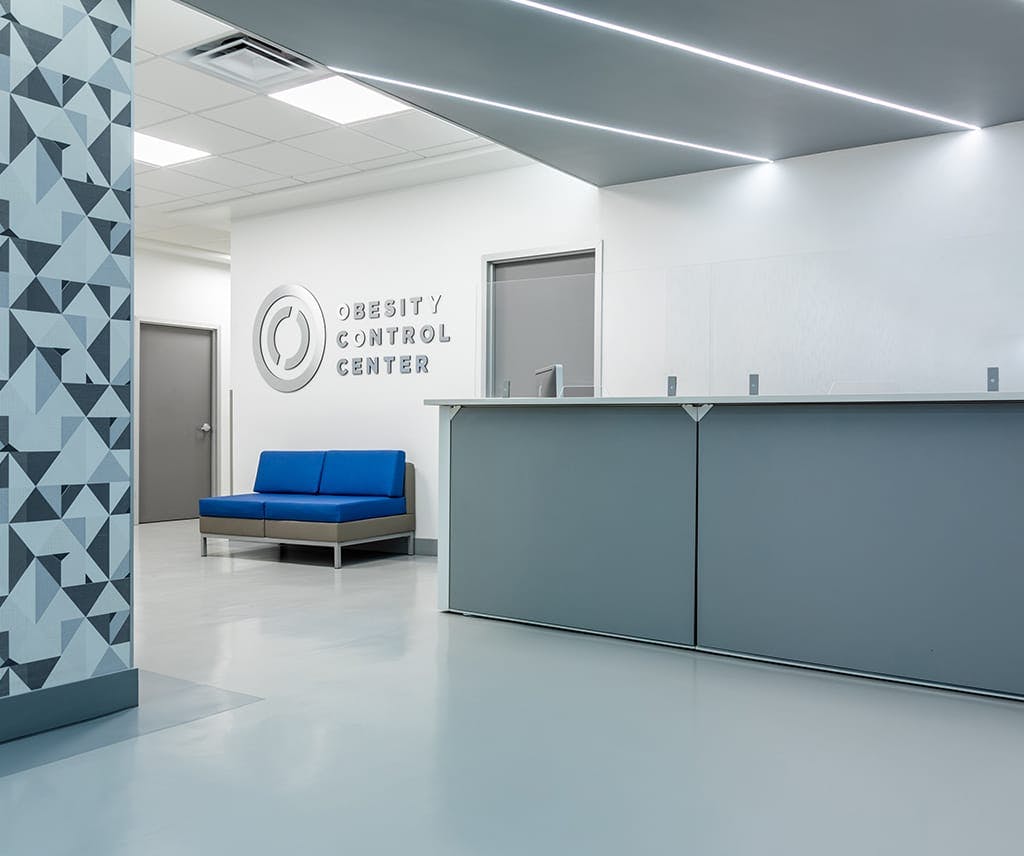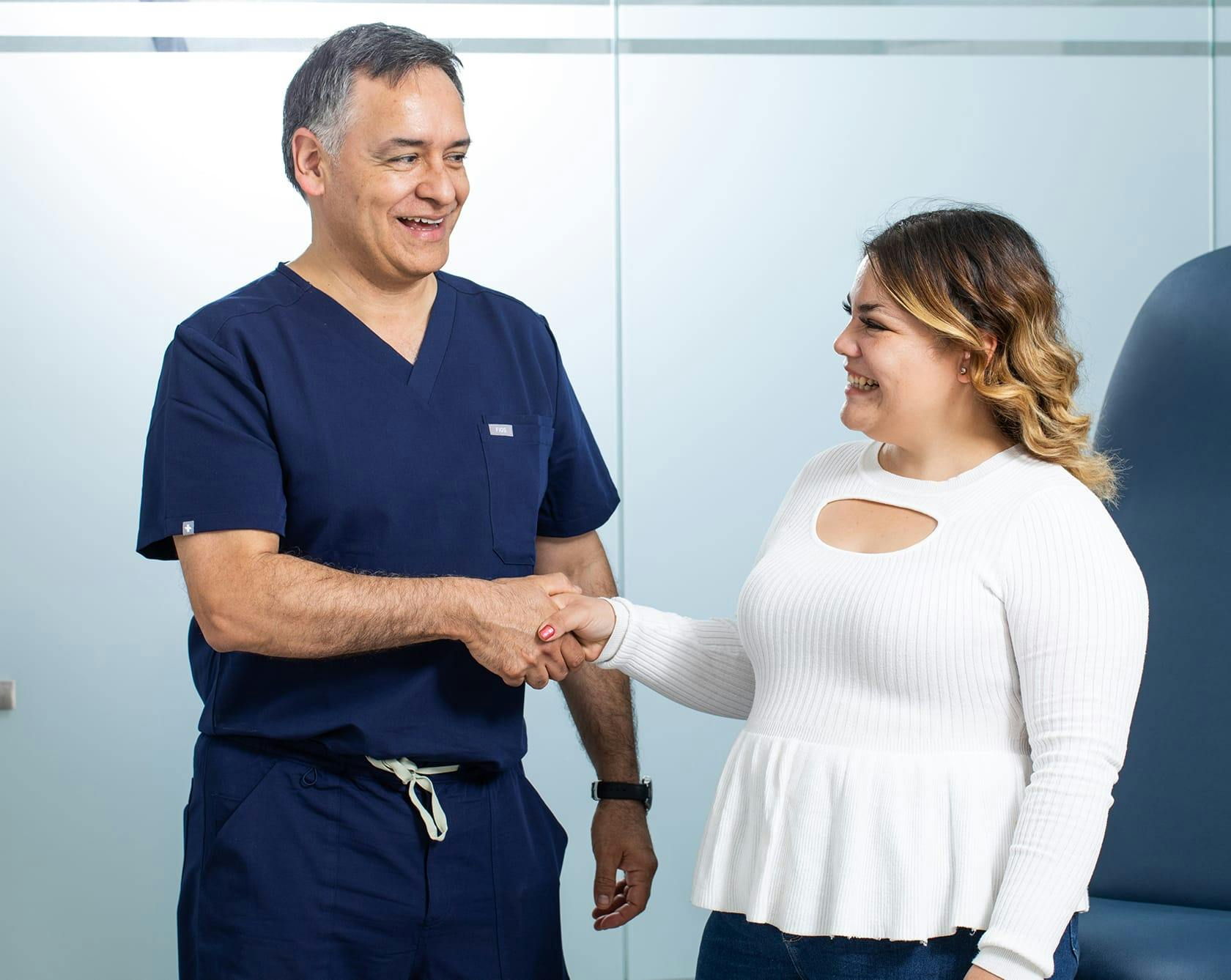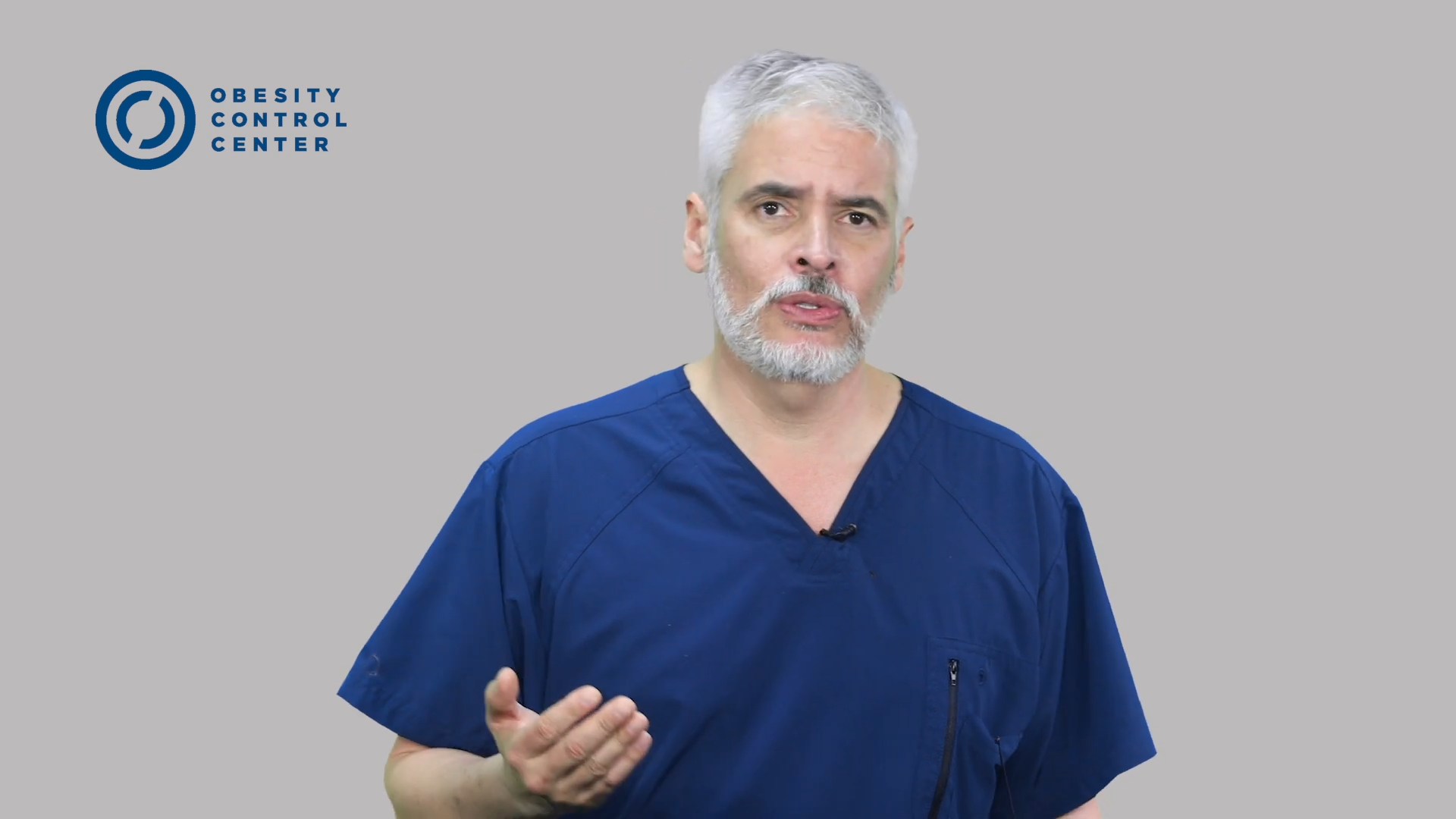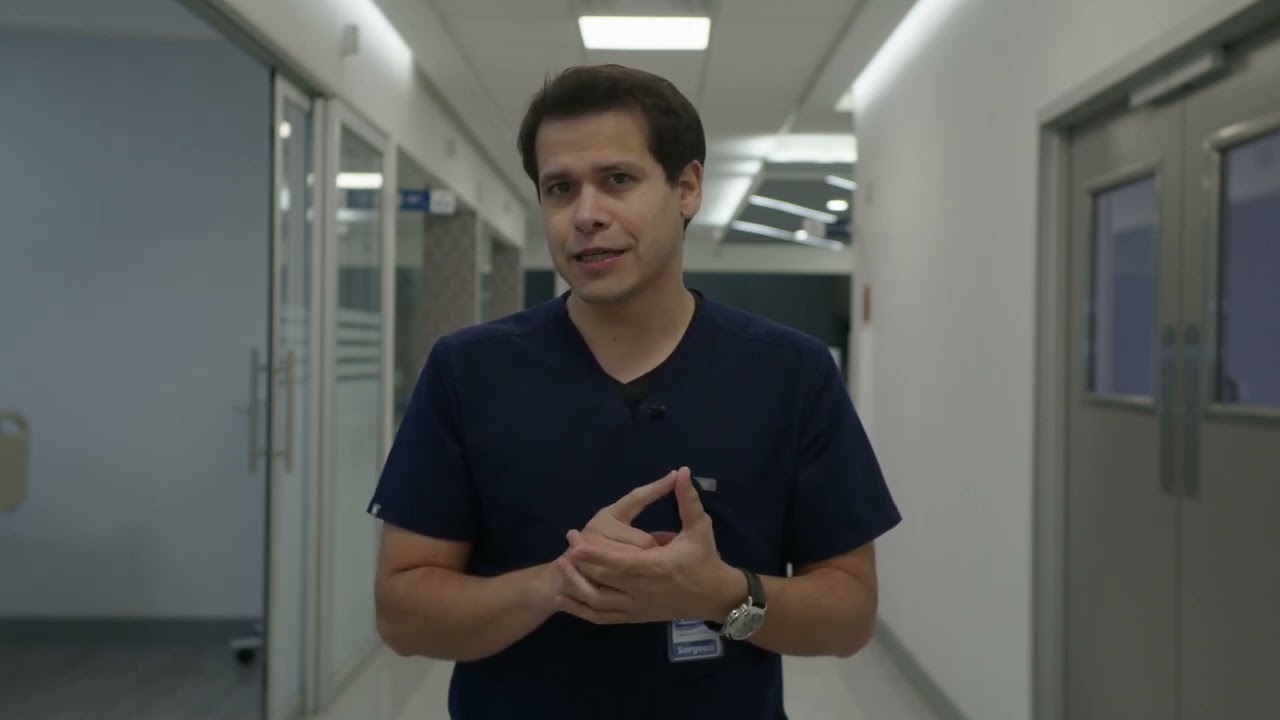At OCC, we understand that revising a failing surgery is unique and must be approached on a customized basis. After thousands of patients have undergone bariatric revision surgery in Tijuana, Mexico with our team, we can consider ourselves leading experts in the field.
Schedule Your Consultation with One of Our Top Bariatric Surgeons
Patient Reviews
Had a great experience at OCC. they are very organized, profession and you receive amazing care! They walk you through each step of the way. I felt very safe from pickup to drop off at the airport. The border crossing was easier than expected. Hotel was nice and comfortable. I would suggest brushing up on some Spanish for even easier communication when not at the OCC, but it’s not totally necessary. I am so happy I made this decision for myself, oh, I went unaccompanied and it was great!
From the very first Contact email until today, 4 days post op, Dr O. And his team has set the bar extremely high when it comes to level of care. Everyone at OCC was kind, compassionate, patient and very knowledgeable. I felt safe, heard and understood when communicating with everyone. It was an incredible experience and I am so glad I travelled to get my surgery done !
I had my surgery two days ago and have nothing but great things to say about OCC and their staff. Coming from the US, this was the best I was ever treated at a medical facility, the staff is so attentive, helpful and professional. They actually hear and address all your concerns, and make you feel super comfortable throughout the whole process. If you’re having any doubts, don’t! OCC is amazing, I’d do it all over again!
Highly recommend OCC very professional from the very beginning to the end. Very clean state of the art facility. I received BETTER care from OCC than in USA by far. Dr. Ortiz and his staff of Dr.s are very kind helpful and very knowledgeable. I would do this again without hesitations. Thank you OCC
Talk with our Personal Concierge Team members today!
Call or email us here to start your journey to revising your procedure. Learn how you can finally get the life you deserve with help of the Obesity Control Center

Three basic ways of revising a gastric bypass
- Increasing restriction — most commonly used
- Increasing malabsorption
- Conversion to another procedure.

Revising a gastric bypass through increasing restriction
At OCC, we have extensive experience placing adjustable gastric bands (AGBs) in gastric bypass surgery patients, dating back to 2002. This is a safe revision option that yields excellent results. We routinely perform all gastric band adjustments under X-Ray, which has the advantage of generating adequate restriction and only requires two modifications.

Additional References
- How Revision Surgery At OCC Can Turn A Failed Bariatric Procedure Into A Success
- Common Challenges After Bariatric Surgery and How Revision Surgery Can Help
- 6 Potential Indications for a Revision Procedure
- Bariatric Revision Surgery for Older Adults: Special Considerations
- Common Challenges After Bariatric Surgery and How Revision Surgery Can Help
No complications? It is possible at OCC.
Rare chronic complications related to AGB, such as slippage (the band slips down on the stomach) or erosion (bans migrates to the inside of the stomach), are much lower in patients who have had a gastric bypass. At OCC, we are proud to report no complications in our accumulated 18 years of experience with this procedure. Close follow-up is necessary to obtain the best results possible.
Book Your Personalized Consultation with One of Our Top Bariatric Surgeons

Gastric sleeve vs. gastric bypass
The Gastric Sleeve and Gastric Bypass are different procedures and work differently. They both have their pros and cons, and this question should be discussed with the surgeon who will perform the procedure. We really like the least invasive procedure that will achieve the best results. We always recommend a sleeve before the bypass. You can always move up to a bypass from a sleeve but not the other way around.
Revision weight-loss surgery in Tijuana, Mexico
At OCC, we understand that revising a failed surgery is unique and must be approached accordingly. This is why after thousands of patients that have undergone weight loss revision surgery, we can consider ourselves leading experts in the field. The Obesity Control Center holds the world's highest safety standards from the Joint Commission. These designations put OCC in the highest class of health and safety, exceeding many American hospitals.
What can cause the surgery to fail?
For a number of reasons, a weight loss procedure can fail to allow the patient to reach his or her goals. Whether it is gastric banding (Lap-Band/REALIZE bands), sleeve gastrectomy/gastric sleeves, vertical gastroplasty (stomach stapling), gastric plication, or gastric bypass surgery, a failed procedure is both disappointing and a major health issue.
- Older techniques: There are multiple factors associated with failure. It can be the technique itself, either because it is outdated, or other more effective safer procedures have been developed.
- Poorly executed surgery: The revision may address an error that is technical in nature, meaning that the surgery may have not been optimally executed.
- Stomach pouch stretching: It can also be the simple result of stretching, which would enlarge the gastric pouch, causing loss of restriction. In our opinion, it is a combination of several factors most of the time, which results in a failed surgery. To learn more about revision bariatric surgery, visit ncbi.nlm.nih.gov
What are my surgical options?
We offer a variety of bariatric revision surgeries in Tijuana, Mexico depending on your situation. OCC offers revisions for:
- Gastric Sleeve Revision
- Bypass Rescue™
- Band Revision
- Plication revision
Bariatric Surgery FAQ Videos
Bariatric surgery revision FAQ Pre-surgery
Who is an ideal candidate for bariatric revision?
How do I prepare for bariatric surgery?
How to enhance physical health before revision bypass surgery?
What supplements will I need?
What’s the price for a bariatric revision?
What does OCC deliver in a bariatric revision surgery package?
Who is an ideal candidate for bariatric revision?
A failed weight-loss procedure can be defined as one that has resulted in:
- Less than 50% loss of the expected weight loss
- Weight loss followed by partial, or total regain
- An intolerance to normal/solid foods
- Signs that the overall quality of life is diminishing
- Additional health issues caused by the procedure
How do I prepare for bariatric surgery?
Like in life, preparation is essential for a successful outcome, mentally, physically, and nutritionally. Additional requirements may be suggested depending on your specific case.
How to enhance physical health before revision bypass surgery?
Preoperative weight loss will detox your liver, making it lighter, and resulting in a quicker, safer weight loss procedure with less impact on your overall status. Even 5% of total body weight loss will result in a dramatic improvement in your ability to respond to surgical stress.
What supplements will I need?
Nourishment at a cellular level will require you to compensate for the deficiencies you have accumulated over the years and the deficiencies expected after weight loss surgery. Research has proven that the only way to replenish these deficiencies is through Bariatric Supplementation. This means that a Bariatric Multivitamin and a Bariatric Protein source prior to the Gastric Bypass will enormously increase your safety profile and a successful outcome. Mental preparation includes looking at the way we relate to food and being proactive about a healthier diet and lifestyle.
What’s the price for a bariatric revision?
Depending on the type of bariatric surgery requested, prices can vary from around $5,400 to $9,000 dollars. We suggest you look into testimonials online, talk to other patients, and don’t be misled by price. The savings by coming to OCC is around 50% of the cost in the US. Don’t risk it by looking for the lowest price. Your health and wellbeing are very valuable.
What does OCC deliver in a bariatric revision surgery package?
Included in the cost of your bariatric surgery:
- 1 night stay at our world-renowned hospital
- 1 night stay at a local 5-star hotel
- Luxury transportation to and from the San Diego International Airport
- Team of three Board Certified surgeons, including two anesthesiologists
- All operating room costs and surgical materials
- All pre-op evaluations and follow-up care
Bariatric revision patient safety FAQ
Is revision surgery safe in Mexico?
What is your safety record for revision surgery?
Is bariatric surgery painful?
What is the mortality rate for revision bariatric surgery?
What is the risk of complications?
What are the side effects?
What are the side effects of anesthesia?
Can a revision be done in a single surgery?
Is revision surgery safe in Mexico?
At OCC, we have more than 26,000 patients that have traveled to our center with no major security incidents to report. We are at the heart of the commercial district, less than half a mile away from the international border to the U.S.A. Tijuana is now the second busiest medical destination for the traveling patient. At OCC, we are glad to be an essential part of this great reputation, as we have accreditations for health and safety in gastric revision surgery.
What is your safety record for revision surgery?
OCC’s complication rate is one of the lowest in the published literature.
Is bariatric surgery painful?
Our process at OCC includes a gentle but short procedure that results in a quick recovery. The OCC difference includes specialized instruments and bladeless abdominal wall trocars. Localized abdominal wall blocking agents diminish the cascade of mediators that cause pain and inflammation. We use half the amount of gas pressure, where others use 20mm/hg, we use 10 to 12mm/hg. This results in less of the dreaded “gas pressure pains” associated with laparoscopic surgery. Our operating time is a fraction of the typical time reported in the literature. We’re in no hurry, we have simply streamlined the process. Less time under anesthesia means quicker recovery times.
What is the mortality rate for revision bariatric surgery?
We can say very proudly that our mortality rate is zero percent. We value health and wellbeing and will never perform a procedure on someone who is either not well prepared medically or has a risk higher than acceptable.
What is the risk of complications?
Like any surgical procedure, complications can happen like leaks, bleeding, hernias, and chronic heartburn. Preparation is key to a successful outcome, and we will be holding your hand all the way. Our complication rate is one of the lowest published in the literature. In fact, our leak rate is 0%, and with the implementation of the new techniques designed at OCC, our patients are experiencing substantial and permanent weight loss without the undesirable symptom of heartburn.
What are the side effects?
Heartburn and reflux seem to be the predominant complaint after sleeve gastrectomy. At OCC, we have adjusted the technique to let the body heal properly and avoid this uncomfortable and common symptom months after the surgery is performed.
What are the side effects of anesthesia?
There are symptoms after having any type of surgery that are related to anesthesia (sleepiness, dizziness, nausea, etc.) and others directly associated with the gastric sleeve itself (cramping, abdominal tenderness, vomiting). Fortunately, these are kept to a minimum and medically treated early so most patients can be up on their feet in a couple of hours and discharged the morning after. Many actually are out shopping the day after surgery!
Can a revision be done in a single surgery?
Revision surgery depends on the original procedure and what the problem is. These patients undergo an initial evaluation through our program and are ultimately scheduled for revision surgery already knowing the possibilities of completing the surgery in a single step. Over 99% of these patients are done in a single step, in other words, one surgical event.
Post-bariatric surgery FAQ
Can you have a normal life after surgery?
How long until I feel normal?
How much can I eat?
How much weight should I expect to lose?
How much does the preparation for surgery matter?
What do I eat after bariatric surgery?
I regained weight after my surgery – can it be fixed?
What is the most common revision technique?
How much can your stomach hold after bariatric surgery?
How long does it take for your stomach to heal after bariatric surgery?
Can you have a normal life after surgery?
Most patients require several months to adapt to the changes of the surgery. This is usually predictable so our nutritionist will always prescribe a nutritional regimen that is easy to follow and will allow you to gradually move up to the following stage. You will start with a liquid diet for a few days, then move on to liquids including the Bariatric Protein Meals. You can slowly start eating mushy foods and then, finally, a normal diet.
How long until I feel normal?
Daily activities and exercise should also progress at the same rate, but the surprising fact is that most patients recover much quicker than they thought; in fact, energy levels are usually higher than expected when the nutrition plan includes the Bariatric Multivitamin and Bariatric Protein Shakes recommended by our team of experts.
How much can I eat?
The only thing you can’t do after surgery is overeating without having severe discomfort, nausea, or even vomiting. Ideally, most patients will return to three normal meals a day and three snacks between meals.
How much weight should I expect to lose?
Gastric bypass is producing a substantial amount of weight loss in a relatively short period of time. A 65% EWL (excess weight loss) at 18 months is reported in general in the literature. For example, a patient that needs to lose 100 pounds (100 lbs. excess weight) will lose at least 65 pounds.
How much does the preparation for surgery matter?
Other factors that influence the total weight loss include how well prepared the patient is before surgery. Preparation not only includes mental and physical preparation, but it also includes nutritional preparation, and it seems to be one of the most important determining factors for success. Pre-operative preparations include supplementation and protein intake. This is why you will see that all patients at OCC undergo pre-surgery preparation and are followed for 5 years after the procedure. OCC Wellness is an online program that helps you achieve your goals.
What do I eat after bariatric surgery?
It starts with liquids during the first few days gradually progressing to mushy food. Then semi-solid foods are eaten, moving on to full solids. All this happens during the first couple of months. The good news is massive weight loss occurs during this time and all the health indicators dramatically get better during this period.
I regained weight after my surgery – can it be fixed?
On average, most patients can tolerate around 30% of their pre-surgical intake after the stomach or pouch adjusts. This restriction is enough to maintain the weight loss through the years. Patients that expand their stomach to a point where they can eat more than 50% of their pre-surgical intake can be candidates for a quick stomach revision, which entails performing a running stitch to adjust the size of the plicated stomach over a calibration tube.
What is the most common revision technique?
In fact, this technique is so effective that patients who have a gastric sleeve with the same type of stomach stretching are candidates for the same technique. Simply sewing the staple line over a calibration tube can adjust the size of the sleeve. These procedures tend to be quick and effective with little downtime where patients regain the original restriction they had after the surgical procedure.
How much can your stomach hold after bariatric surgery?
Patients will notice once they are past the liquid phase and eating full solids that the restriction level will result in around a third of the original meal volume. Eating a third of your typical meal will definitely induce weight loss and better overall health.
How long does it take for your stomach to heal after bariatric surgery?
Recent studies show that the inner lining of the stomach can start healing in as little as 6 hours! It is important to follow all the guidelines that we teach our patients prior to surgery which results in an uneventful recovery and a good outcome.
References
- J Dang, N Switzer, J Wu, et al. Gastric Band Removal in Revisional Bariatric Surgery, One-Step Versus Two-Step: a Systematic Review and Meta-analysis. Obesity Surgery (2016), 26:4
- S Brethauer, S Kothari, R Sudan, et al. Systematic review on reoperative bariatric surgery American Society for Metabolic and Bariatric Surgery Revision Task Force. Surg Obes Relat Dis 10 (2014) 952–972.



















